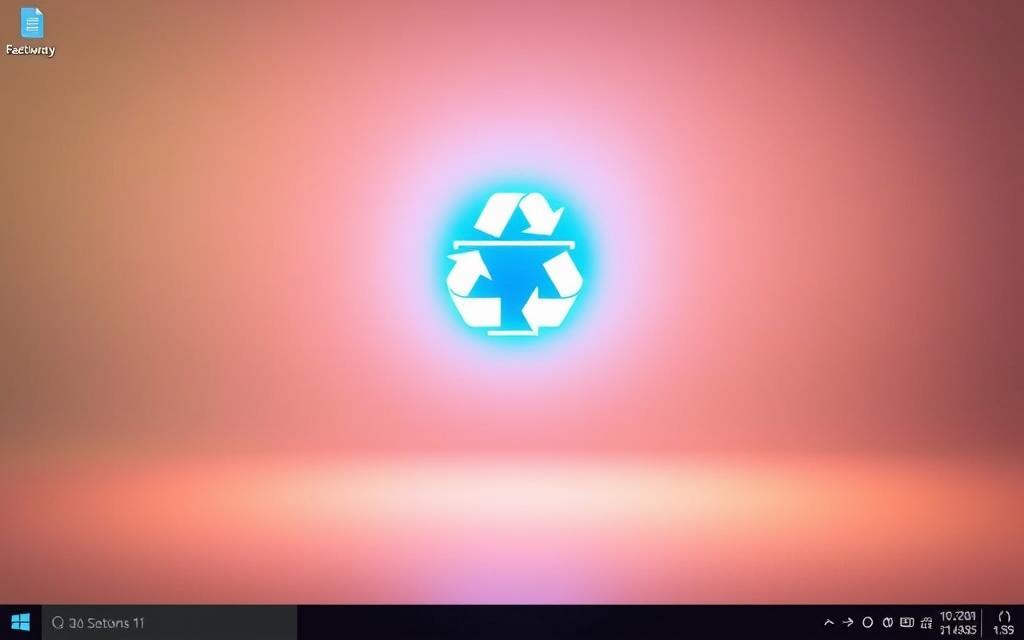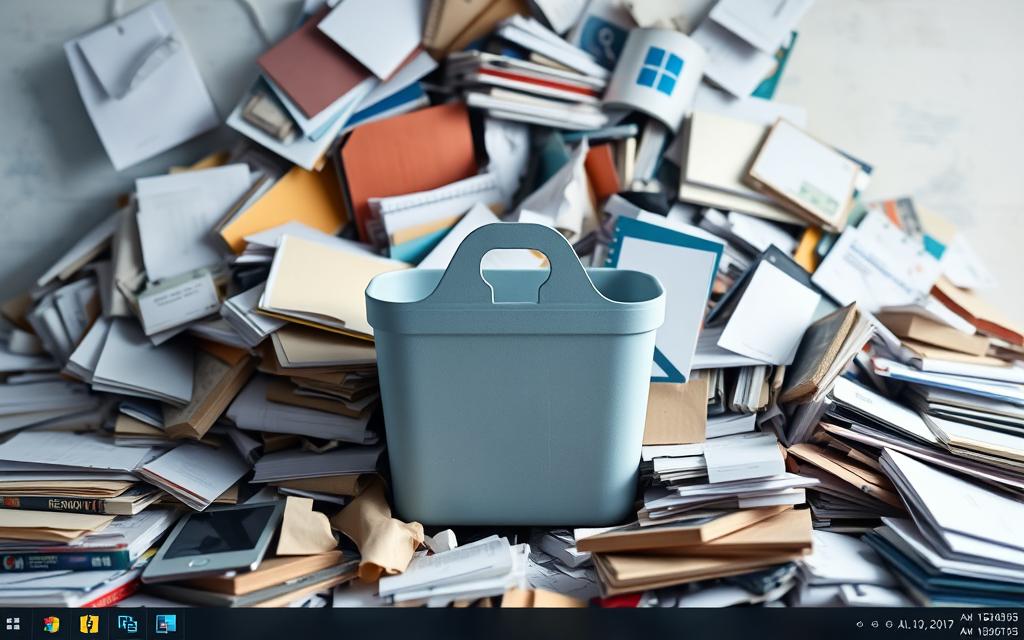Table of Contents
Many users experience delays when emptying the Recycle Bin, especially with large files or bulk deletions. These issues often manifest as persistent “Working on it…” messages or temporary unresponsiveness in File Explorer. Despite proper hardware, such delays can still occur, leaving users frustrated.
System resources and file metadata processing play a significant role in these slowdowns. For example, handling GB-sized files or over 20 items at once can strain the system. User reports highlight delays at 99% completion or brief “Not responding” statuses, even on healthy drives.
It’s important to note that hardware isn’t typically the root cause. Chkdsk logs often confirm healthy NTFS structures, ruling out disk errors. Instead, the focus should be on optimizing system settings and processes to improve performance.
Introduction to Recycle Bin Performance in Windows 11
Windows 11’s Recycle Bin is designed to manage deleted files, but certain factors can slow it down. This temporary storage buffer ensures deleted files can be restored if needed. However, performance issues often arise during large operations.
The system processes file metadata during deletion or restoration. This includes updating indexes and managing allocation units on the drive. These mechanics are crucial but can strain resources.
- Large files or bulk deletions can overwhelm the system.
- Drive allocation settings and index health play a role.
- Even optimized systems may experience brief UI freezes.
Storage Sense, a built-in feature, automates cleanup to reduce manual delays. It helps maintain the recycle bin by removing older items automatically. This can mitigate performance issues over time.
| Factor | Impact |
|---|---|
| File Size | Larger files take more time to process. |
| Drive Allocation | Improper settings can slow down operations. |
| Index Health | Corrupted indexes cause delays. |
While these factors are manageable, occasional slowdowns are expected. Understanding them helps users optimize their system for better performance.
How to Make the Recycle Bin Faster in Windows 11
Optimizing the Recycle Bin can significantly enhance system performance. By adjusting storage settings and automating cleanup, users can reduce delays and improve responsiveness. These tweaks ensure smoother operations when managing deleted files.

Customize Storage Limits
Right-click the Recycle Bin and select Properties to customize storage limits. Reducing the default allocation, such as from 26GB, prevents bloated directories. Smaller size limits improve responsiveness and save drive space.
Automate Cleanup with Storage Sense
Navigate to Win+I > System > Storage to configure Storage Sense. This feature automates cleanup by removing older items after 1-60 days. Use the Run Storage Sense now button for immediate results.
Be cautious with auto-deletion periods. Setting overly aggressive schedules may hinder critical file recovery. Proper configuration ensures a balance between efficiency and usability.
Advanced Tips to Optimize Recycle Bin Performance
Taking a deeper dive into system maintenance can significantly improve Recycle Bin performance. By addressing underlying issues and monitoring behavior, users can ensure smoother operations and reduce delays.
Run Disk Checks and System Maintenance
Regular disk checks are essential for maintaining a healthy drive. Use the Command Prompt to schedule monthly CHKDSK scans. This tool identifies and resolves potential file system issues before they impact performance.
For example, a recent CHKDSK log showed a 3.9-minute scan duration with no errors. This proactive approach prevents unexpected slowdowns during Recycle Bin operations.
Monitor File Explorer Behavior
File Explorer can sometimes hang during large operations. Use Task Manager to monitor its resource usage. This helps identify processes that may be causing delays.
Additionally, disabling third-party shell extensions can reduce interference. These extensions often add unnecessary overhead to deletion processes.
- Adjust Indexing Options in the Control Panel to exclude the Recycle Bin from background indexing.
- Optimize SSD performance using the Defragment and Optimize Drives tool for faster file handling.
| Action | Benefit |
|---|---|
| Monthly CHKDSK Scans | Prevents file system errors |
| Monitor File Explorer | Identifies resource-heavy processes |
| Disable Shell Extensions | Reduces deletion overhead |
| Optimize SSD | Improves file handling speed |
For more detailed guidance on improving Windows performance, visit this resource. These advanced tips ensure your computer runs efficiently, even during intensive tasks.
Conclusion
Improving Recycle Bin efficiency ensures smoother file management and system performance. By automating storage cleanup, adjusting capacity limits, and running regular checks, users can minimize delays and maintain optimal operations.
Brief pauses during large operations are normal but can be reduced with proper optimization. Regular maintenance prevents cumulative performance issues, ensuring your computer runs efficiently over time.
Balancing auto-deletion convenience with recovery safety is crucial. Adjusting size limits and monitoring files ensures both speed and usability. Implementing these strategies will enhance your Windows experience and keep your Recycle Bin responsive.
FAQ
What is the Recycle Bin in Windows 11?
The Recycle Bin is a system feature that temporarily stores deleted files, allowing users to restore them if needed. It helps prevent accidental data loss on your computer.
Why does the Recycle Bin slow down over time?
Performance issues can arise due to accumulated files, improper storage settings, or system errors. Large file sizes or frequent deletions may also impact speed.
How can I adjust Recycle Bin storage settings?
Right-click the Recycle Bin icon, select “Properties,” and customize the maximum size for each drive. Reducing the allocated space can improve performance.
What is Storage Sense, and how does it help?
Storage Sense is a built-in tool in Windows 11 that automatically clears unused files, including those in the Recycle Bin, to free up space and optimize system performance.
Can running disk checks improve Recycle Bin speed?
Yes, using tools like CHKDSK or the built-in Disk Cleanup utility can identify and fix errors, enhancing overall system and Recycle Bin efficiency.
How does File Explorer behavior affect the Recycle Bin?
Frequent file operations or high system load can slow down File Explorer, indirectly impacting the Recycle Bin. Monitoring and optimizing these processes can help.
Is it safe to permanently delete files from the Recycle Bin?
Yes, permanently deleting files frees up space and can improve performance. However, ensure you no longer need the files before emptying the bin.









